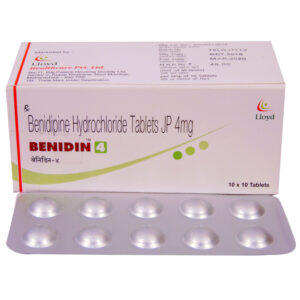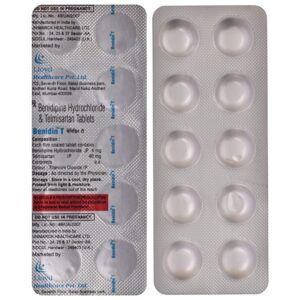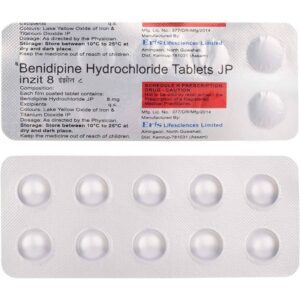BENIDIPINE
BENIDIPINE: Benidipine is a calcium channel blocker (CCB) that is primarily used for the treatment of hypertension (high blood pressure). It is a dihydropyridine-type CCB, similar to amlodipine.
The mechanism of action of benidipine involves the blockade of calcium channels in vascular smooth muscles and the heart. By inhibiting calcium influx into these cells, it relaxes and widens the blood vessels, leading to a decrease in blood pressure. Additionally, it reduces the workload on the heart by decreasing the force of contraction and heart rate.
Benidipine is typically taken orally as a tablet, once daily. The usual starting dose for hypertension is 4-8 mg per day, which may be adjusted by a healthcare professional according to individual needs.
Common side effects of benidipine include dizziness, headache, flushing, palpitations, ankle swelling, and gastrointestinal symptoms such as nausea, constipation, and abdominal pain. These side effects are typically mild and temporary and may resolve with continued use or dosage adjustment. Some individuals may also experience more serious side effects such as low blood pressure, irregular heart rhythm, allergic reactions, or liver problems. It is important to consult a healthcare professional if any concerning or persistent side effects occur.
As with any medication, it is crucial to disclose any pre-existing medical conditions, current medications, or allergies to the prescribing healthcare professional to ensure the safe and effective use of benidipine.











